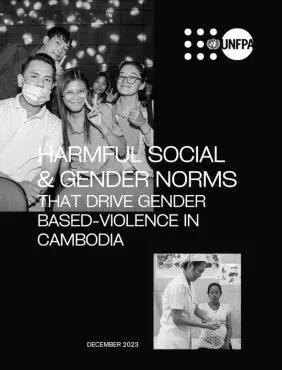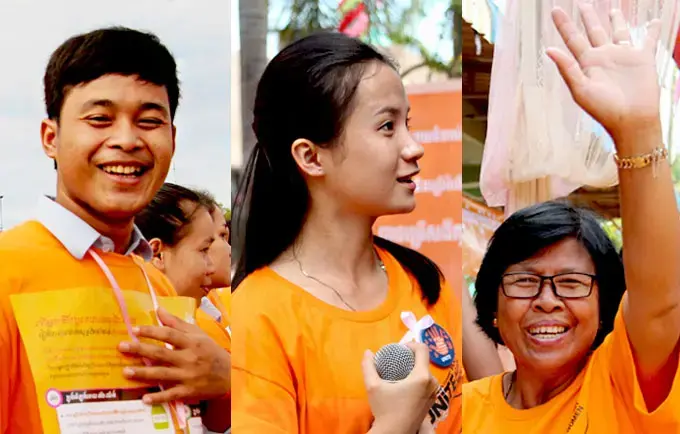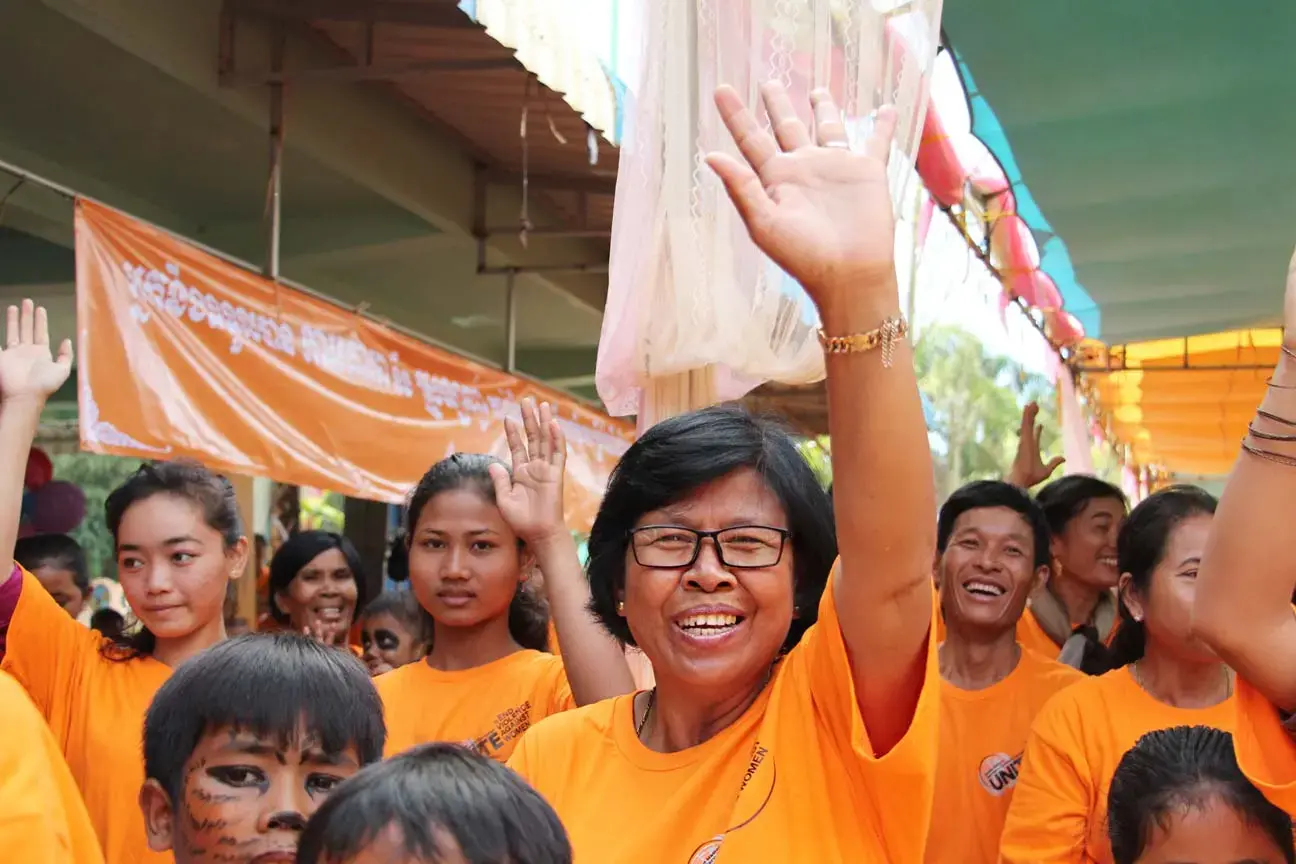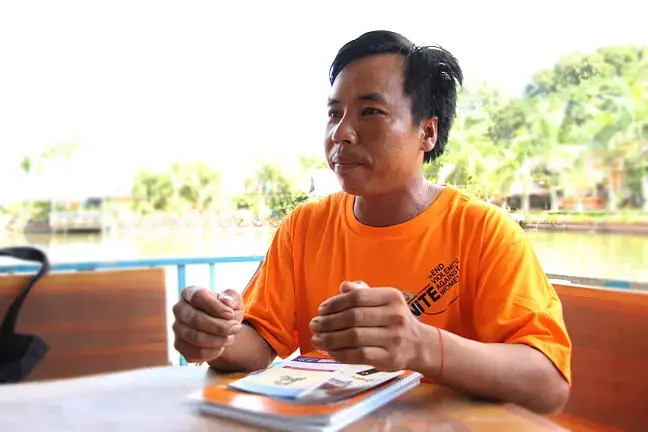In Cambodia, recent data shows that one in five (21%) women report having experienced emotional, physical, or sexual violence by their current or most recent intimate partner (IP) in their lifetime.[i] When asked, more than one in three (36%) of ever-partnered men reported perpetrating physical and/or sexual violence against a female partner.[ii] Other forms of gender based violence (GBV) include traditional harmful practices such as child marriage, sexual harassment in the workplace, sexual exploitation and abuse through trafficking and technology facilitated GBV (TFGBV).
Clearly GBV is still pervasive in Cambodia, yet it is understood to be vastly under-reported due to harmful gender and social norms, combined with a lack of adequate reporting and response systems. Data shows that over 50 percent of women that experienced physical or sexual violence had not told anyone. Those that did, reported to their family (59%), followed by police (21%).[iii] An earlier study with similar results on help-seeking for IPV found the most common reasons women had not sought help was they saw violence as normal or not serious or they had concerns of shame to her or her family.[iv]
The perpetration of GBV is strongly correlated with harmful gender and social norms which are rooted in gender-inequitable constructions of masculinity, including sexual entitlement. While Cambodia has seen dramatic changes with more women entering the workforce in the past few decades, traditional gender attitudes towards women’s roles in the family and society still impact their access to opportunities, control over their bodies, and risks for GBV. Recent data shows that 37 percent of women and 16 percent of men believe there is at least one of six reasons that it is acceptable for a husband to beat his wife/partner.[v]
The Royal Government of Cambodia (RGC) has implemented National Action Plans to Prevent Violence against Women (NAPVAW), that prioritize prevention of GBV, provision of quality essential services, and a strong legal and policy framework. National studies as well as qualitative studies have been undertaken to better understand GBV in Cambodia. Both government, civil society and development partners have invested in initiatives toward the prevention of GBV through strategies targeting youth, families, communities or groups with increased risk or barriers in accessing services.
These efforts are significant; however, work remains to develop comprehensive prevention programming. The evaluation of the most recent NAPVAW (2019-2023), found that “prioritizing prevention programs that address harmful social and gender norms are required for transformative change on attitudes and practices towards ending violence against women and girls.”[vi]
UNFPA globally is committed to accelerating the reduction of GBV and harmful practices as part of its’ three transformative results: zero maternal mortality, zero unmet need for family planning and zero gender-based violence and harmful practices. UNFPA, as one of the lead agencies in addressing GBV, is strengthening its work to support the Royal Government of Cambodia’s ambition towards the reduction of all forms of gender-based violence by 2030.





